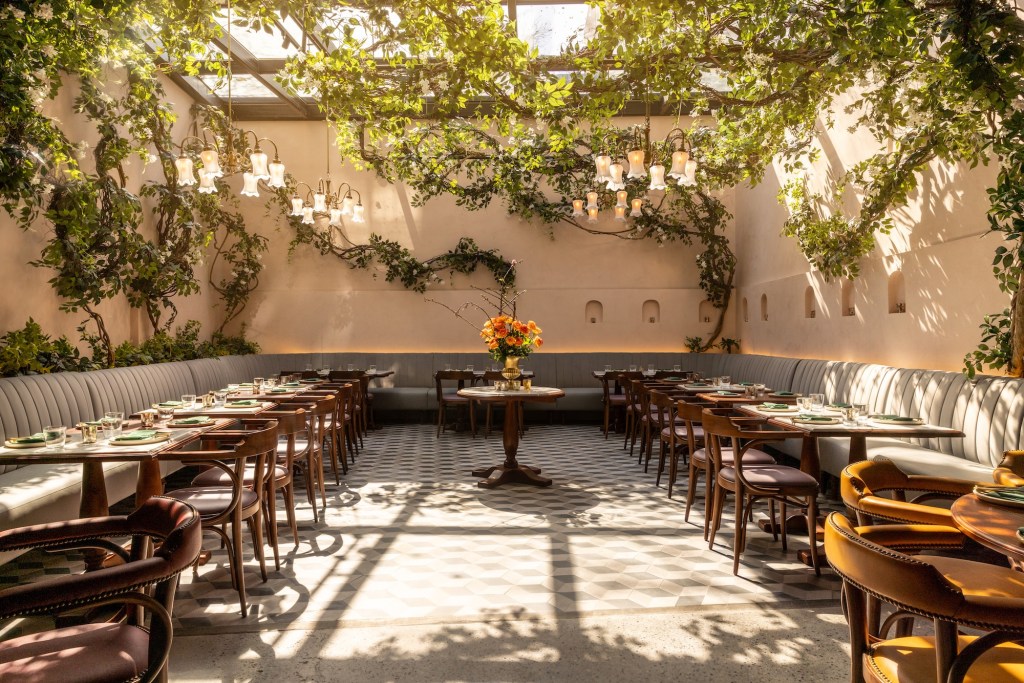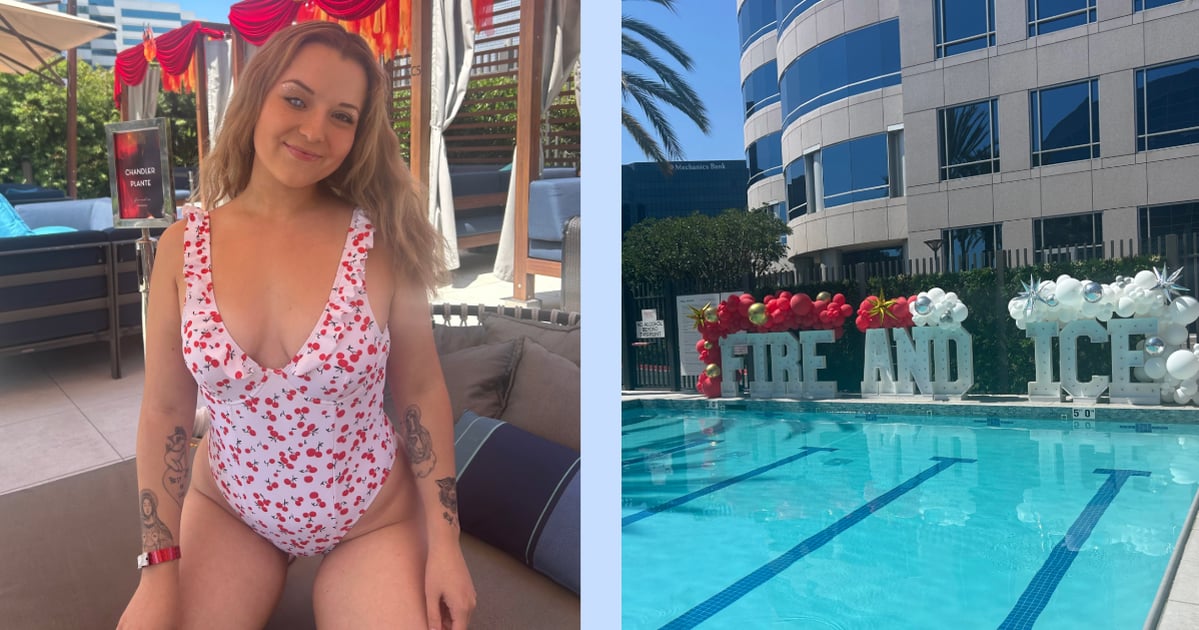Ahead of opening the doors to his new restaurant Bungalow, chef Vikas Khanna already received reviews from two of his most influential critics: Eric Ripert and his mother.
“My two biggest cheerleaders and critics have approved. So I’m very happy about that,” says Khanna, describing Ripert as a big supporter of his work, and an inspiration for his commitment to humanitarian efforts. “For him to say that this is one of the best Indian meals — that made me cry,” says Khanna, who became one of the first Indian chefs working in New York to earn a Michelin star in 2012, with the upscale restaurant Junoon.
“I’ve opened a lot of restaurants and I still have the anxiety — which means that I still care,” says Khanna of his nerves a few days before Bungalow’s debut to the public. The chef is sitting in the East Village restaurant’s dining room, situated underneath a large skylight. The room is canopied by winding green foliage and chandeliers; the front area of the dining room features colorful murals contained by arched panels. Orange marigolds adorn the entrance.
The restaurant is located on First Avenue right above Houston Street, several blocks down from a cluster of Indian restaurants along Sixth Street.
“The East Village has been the birthplace of so much art and reform of cultures in this country. And I love what the East Village has done for Indian cuisine in the last three or four decades,” says Khanna. “People forget easily that this neighborhood was different. To be in a place of continuity, where our earlier generations attempted to do something — you represent them,” he adds. “I’m in continuity of all these restaurants which have survived here.”

Bungalow was founded by Bombay House Hospitality chief executive officer Jimmy Rizvi, who brought Khanna on board as chef last year. Together the pair set out to open an authentic restaurant that would pay homage to regional Indian cuisine, culture and community.
The restaurant name, Bungalow, is a tribute to India country clubs and the memory of big family celebrations held in big spaces. For many customers the menu will tap into a sense of nostalgia. Each meal at Bungalow begins with crispy papadum, a riff on tapioca finger chips, a memorable snack for “all the kids who grew up in India during post independence,” says Khanna, noting that the dish has been a story-starter during pre-opening friends and family services.
Khanna, who is the host of TV programs including “MasterChef India” as well as an author and filmmaker, talks about his menu in stories. When describing the small plate Banarasi Puri, served with beetroot and pineapple, he recalls visiting the spiritual city of Varanasi/Banaras, one of the oldest living cities in the world situated along the Ganges River. The Puri at Bungalow pays homage to a festive dish from the area. During one trip, he drank chai with a man who regaled him with the story of the river rising to meet a couple who were unable to walk down to the water.
“New York is a tough city. We all know that,” says Khanna. “And sometimes the first thing it kills is the artist inside you. I think a lot of us come here as artists because the city attracts you, but the city puts you through too many tests. So every time I failed the test, I went to Varanasi,” adds Khanna. The city also inspired his 2020 film “The Last Color.”
The chef also highlights his Purple Sweet Potato Chaat, served with green mango sauce, that’s connected to memories of street food served in Delhi in early spring. Spice Roasted Pineapple, a large plate, was inspired by the harvest festival of south India, which takes place in early February. “I did all my culinary education in South India, and I started my course during the harvest festival,” says Khanna. “So temples were serving this dish out of pineapple curry, sweet, spicy, tangy, and it blew my mind.”
In the dessert section, Khanna channels nostalgia through a molten Black Forest cake, a popular childhood birthday cake in India, served with gulab jamun ice cream. The dish is a tribute to Indian parents who planned those early celebrations.
“We open restaurants and it’s only about the food, the food,” says Khanna, adding that he hopes that the food at Bungalow will be a vehicle for diners to connect with a broader story. “There’s such a big continuity, which is being a part of this cuisine.”



